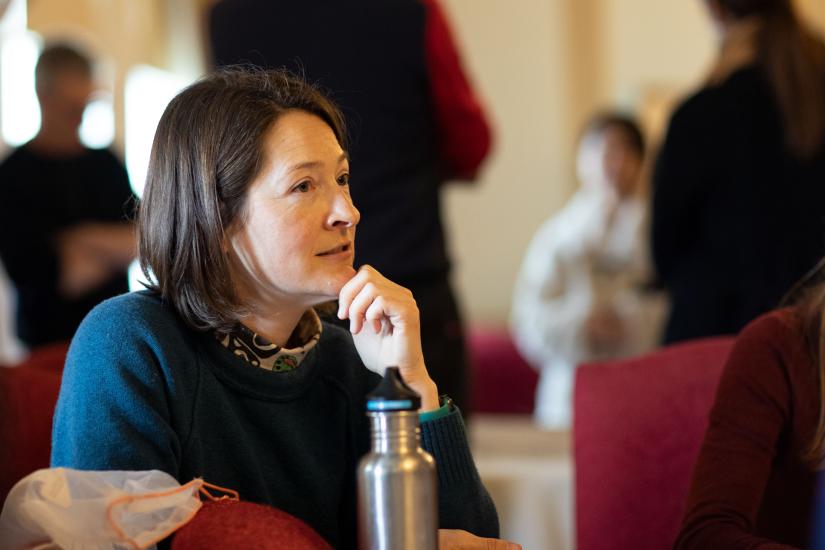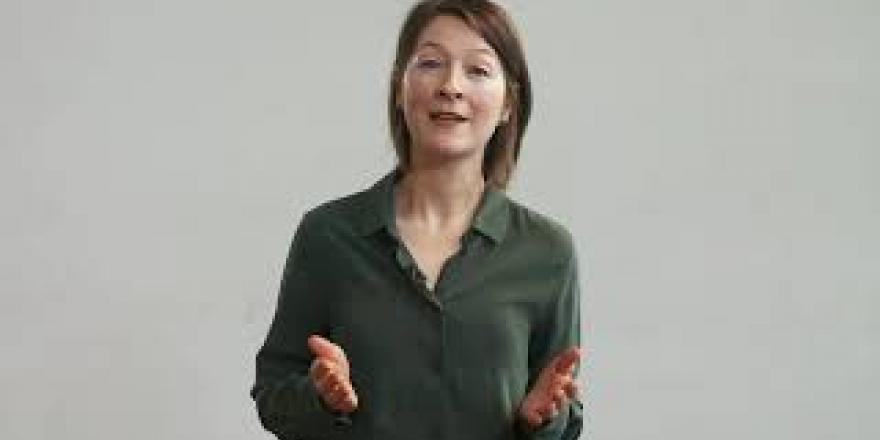PhD candidate Naomi Carrard is passionate about water, sanitation and hygiene (WASH) sector engagement and building connections with sustainability transformations.

Naomi Carrard's research investigates ways to bridge conceptual thinking about sustainability with what people are doing in practice on the ground, particularly focusing on the challenging development space in WASH.
The transdisciplinary inquiry documented in her thesis explores how WASH professionals can translate and implement sustainability concepts in sectoral research and practice.
I chose to undertake my doctorate at ISF because the transdisciplinary approach to research really resonated with me.
– Naomi Carrard, ISF
Naomi explains that she hopes that "daily practices, actions and programs of work that are undertaken in WASH continue to address the important challenges of services for people." Naomi's research aims to strengthen this work by also bringing in imperatives around water resources, local environments and wider global sustainability challenges.
"I chose to undertake my doctorate at ISF because the transdisciplinary approach to research really resonated with me", Naomi says.
"I was able to be quite ambitious in my scope and conceptualisation, bringing together different methods and ideas to tackle a complex challenge. I was supported to find ways to tell a story and knit connections together, and ISF’s encouragement of publication through your PhD is another real asset associated with the program."
Naomi Carrard represented ISF in the 2020 UTS 3-Minute Thesis final, it was a way to look at her PhD from a different perspective.
The judges praised Naomi for her "screen presence" and her ability to condense her extremely complex area of investigation into a Plain English description.
In her presentation, Water and Sanitation: Services for People and Planet, Naomi says that her research is "...about how we can realise people's human rights to water and sanitation in a way that strengthens, rather than threatens, our environmental integrity."
Naomi explains the future of water...in three minutes

Imagine a world where 2 billion people live without safe, reliable drinking water at their home, and 4.5 billion people live without safe sanitation. That's the world we live in right now.
Imagine a world where passionate, smart, creative people are working to address this challenge. People in governments, people in civil society, the private sector, community advocates and also researchers (like me). That's also the world we live in right now.
Now cast your mind forward to time when these numbers look a whole lot better. Millions - or billions - more have safe water and toilets. And I ask you to consider, in this future, what does the natural environment look like?
In one possible scenario, cities drink, but groundwater is depleted. We deal with the pathogens contained in faecal waste, but we also dispose of its valuable (and scarce) nutrients. Nutrients which are essential for food production.
In another scenario, we seek win-wins. We manage our water to ensure everyone, everywhere has safe water to drink, without compromising the resource on which this depends. We treat our waste to be safe, and also support food security.
The decisions we make now, and in coming years, will determine which future we create. And I'm hoping you agree with me that the second is the one we want.
My research is about this future. It's about how we can realise people's human rights to water and sanitation in a way that strengthens, rather than threatens, our environmental integrity.
I'm inspired by a framework that's about achieving social foundations while not transgressing ecological limits - go search for 'planetary boundaries and donut economics' if you want to know more.
What this framework makes clear is that we have to do things differently. Historically we have exceeded our planetary limits and failed to meet basic needs.
So I’m exploring - through three transdisciplinary studies - how the water and sanitation sector can shape a better future.
First, I analysed literature and identified four future priorities, including strengthening the links between household water supply and water resource management sectors, and scaling-up reuse.
Second, I addressed a gap in global monitoring frameworks, establishing that 80% of people in Asia-Pacific countries rely on groundwater as a source of drinking water. Using systems thinking tools, I considered how water and sanitation professionals can better engage in sustainable groundwater resource management.
Third, I investigated an innovative resource-oriented sanitation system in Sri Lanka to find out what it costs to achieve the kind of circular system we saw in the image of our preferred future…and what it takes from a governance perspective to make these kinds of systems the norm.
Weaving these studies together, I hope that my research provides signposts for those of us passionate about people having safe water and sanitation, and a sustainable environment.
If we make good choices now, I think we can achieve both.
RESEARCH OUTPUTS
Entrepreneurs help equality by improving access to WASH - ISF project, 2012-2017

